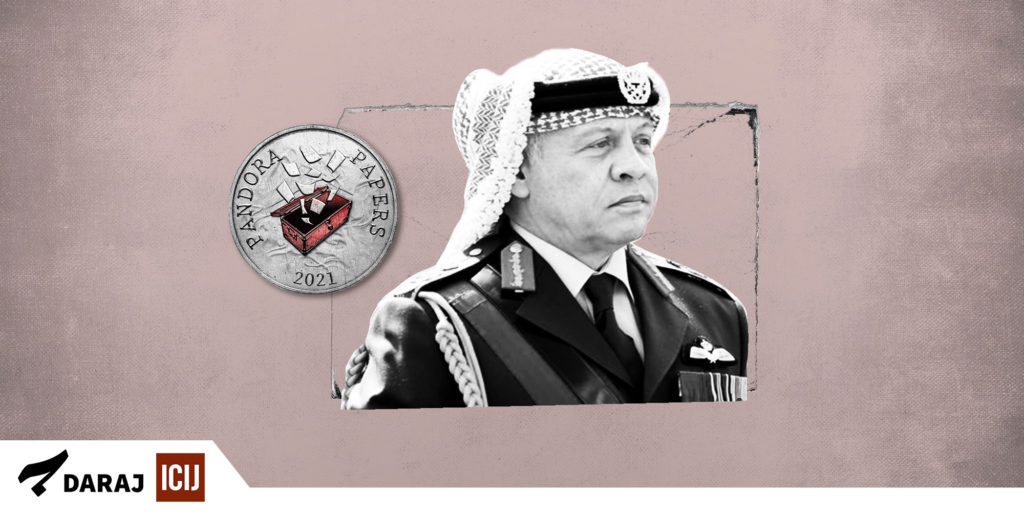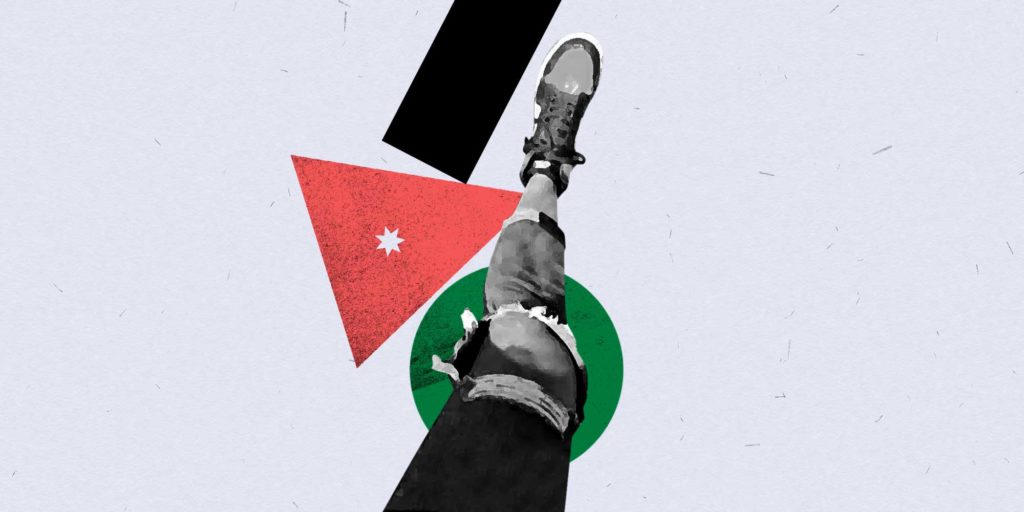The Jordanian government recently approved the final draft of the constitutional amendments, which include a significant expansion of royal powers. The proposal is currently being discussed in parliament.
The amendments include the establishment of the National Security and Foreign Policy Council (NSFPC), which is to be headed by the king. In addition, the King will have the sole power to appoint and dismiss the Director of Public Security, the Chief Justice, the Head of the Sharia Judicial Council, the General Mufti, the Chief of the Royal Court, as well as all royal advisers and future NSFPC members.
A series of revisions in 2014 and 2016 had already enabled the King to exercise his powers without the approval of the prime minister or relevant minister. The King furthermore unilaterally appoints the Crown Prince and appoints the vice-king, the President of the Senate, its members, the President of the Judicial Council, the President of the Constitutional Court, its members, the army commander, director of intelligence and director of public security. He can also dismiss them.
He moreover has the power to dissolve the country’s Legislative Power: the Senate and House of Representatives. King Abdullah has in fact dissolved all parliaments before any of them completing their term. If the current amendments are approved, he becomes a political player that brings together all powers under one crown. Jordan will become an absolute monarchy, while people have demanded a reduction of royal powers ever since the 2011 popular protest movement.
True, in reality the King already exercised many of the aforementioned prerogatives in violation of the constitution. But now the constitutional changes will offer legitimacy, while making reform impossible, eliminating the principle of separation of powers and opening a door to oppression and corruption.
A Legal Coup
The biggest problem of the proposed amendments is that they constitute a coup against the very essence of the Jordanian system of government. Article one of the constitution states that: “The system of government is parliamentary with a hereditary monarchy.” Representatives shall be elected by general and free elections. Thus, the parliament represents the will of “the Nation,” which according to article 24 is: “The source of all powers.”
In a parliamentary monarchy, the King does not rule. He is a constitutional monarch, not a president. The House of Representatives, or parliament, is the cornerstone of the system. It offers trust and support to the government. If a government loses its confidence, it will fall.
According to the constitution, the Council of Ministers, or cabinet, manages all internal and external affairs of the state, including security and foreign policy. Not the King. He exercises his powers by royal decree, which must be signed by the Prime Minister and every minister involved. Article 40: “The King expresses his concurrence by placing his signature above the said signatures.”
Headed by the King, with among other members the Prime Minister and the Ministers of Defense, Interior and Foreign Affairs, the Army Commander and the Director of Intelligence, the National Council for Security and Foreign Affairs (NSFPC), which is to handle all issues related to defense, national security and foreign policy, will rob the Council of Ministers of its constitutional powers.
Read Also:
It will turn the latter into a kind of village council, which will carry out its daily and internal tasks far removed from its constitutional mandate. The NSFPC will do the heavy lifting using the government as a front. And it can do as it pleases for it bears no political, moral or judicial responsibility.
The big question thereby is: how will decisions be taken in the council, as it is the King who appoints all members and can dismiss them or accept their resignation?
No Power to the People
What is also strange is that the NSFPC will be established upon a ruling by the Council of Ministers, not a law issued by the country’s legislative authority. The constitutional amendments complement the country’s “old rule.” By targeting, and dwarfing, the House of Representatives, they diminish the will of the people. For this all comes in addition to the usual rigging and engineering of the elections by the intelligence services, mainly to avoid repeating the experience of 1956, in which the political parties formed the country’s first and last ever parliamentary government.
The outcome of the 1956 experience was not pretty. The government was sacked after six months. The prime minister was placed under house arrest. The parliament was dissolved. Some of its members were imprisoned. Political parties were suspended and martial law was imposed, which remained in place until the early 1990s.
Ever since, in accordance with article 35 of the constitution: “The King appoints the Prime Minister and may dismiss him or accept his resignation. He appoints the Ministers; he also dismisses them or accepts their resignation, upon the recommendation of the Prime Minister.”
Irony
The cabinet adopted the proposed constitutional amendments without consulting any political or social forces in the country. There has been no dialogue with parties, unions, or even the committee for modernizing the political system, which the King himself had formed to present changes regarding political parties, parliamentary elections and the constitution.
This brings us back to the constitutional amendments of 2014 and 2016, which were ratified by the Council of Ministers in one long marathon session and approved by the House of Representatives and the Senate by an overwhelming majority. Only two days later they were ratified by the King and issued in the Official Gazette.
The big irony of it all is that the people who peacefully demanded constitutional amendments, for the system to become more balanced and democratic, were referred to the State Security Court on charges of attempting to overthrow the regime and change the constitution.
With the King supporting the current amendments, they will arguably pass as easily as all previous ones, even though they alter and undermine the essence of the constitution, the pillars of government, and turn the country into an absolute monarchy.
King’s Orders
The Jordanian constitution formulated in 1952 made the King an arbiter between the different pillars of power, not an autocratic ruler exercising power alone.
The King is not elected by anyone, nor held accountable by anyone, while the House of Representatives does not have the right to dismiss him even if he betrayed the country, neglected its responsibilities or overturned the constitution, as happened with King Talal in 1952.
Understanding the constitution requires it to be read as a unit, interpreting all parts in relation to another.
Article 26 states: “The Executive Power shall be vested in the King, who shall exercise his powers through his Ministers, in accordance with the provisions of the present Constitution.” This should be read in relation to Article 49: “Verbal or written orders of the King shall not release the Ministers from their responsibilities.”
This means that the King’s orders are never binding for a minister. A minister must take the right decision, even if that violates the King’s wishes, for the ministers are accountable to the House of Representatives. They have a general mandate to take decisions.
The proposed amendments violate the principle of concomitant responsibility, with the exception of the King, who is shielded not only against any form of accountability, but also against any form of criticism.
Anyone who dares speak out against the king, the queen or crown prince can be imprisoned for up to three years. According to a report by the National Center for Human Rights, in 2020 alone, 311 people were sentenced for insulting the royal family, most of them activists in the popular movement.
No Taxes
The proposed constitutional amendments represent a blatant distortion of the three pillars of power, in addition establishing a higher authority: the National Council for Security and Foreign Policy.
The King, who has become a political player while monopolizing state violence, can harness all state agencies for the benefit of his own money and investments.
He is exempted from paying taxes in Jordan, following the 2017 amendment of the Jordanian tax law. According to the Head of the Royal Court at the time, the King was exempted from paying taxes “because he had not received any state allocations for five years.” In addition, any misuse of funds or corruption within the army and security services – which constitutes a true black hole in the state budget – will be protected against accountability.
The same is true for violence and violations of human rights at the hands of the security services, including torture, as the heads of the security agencies will be able to hide behind the mantle of the King, who appoints them.
What is dangerous about the amendments is that they bring the army into politics, while the mission of the army, according to the constitution, is limited to defending the homeland and keeping it safe. In short, the amendments will only increase the current state of tension in the country and will put the King against the street, which has lost confidence in the entire political system.
Voter turnout in the 2020 parliamentary elections did not exceed 30 percent. Slogans increasingly target the King. During a protest in Zarqa, Jordan’s second largest city, a banner was raised with the text: “Abdullah, you are responsible.”
Read Also:








